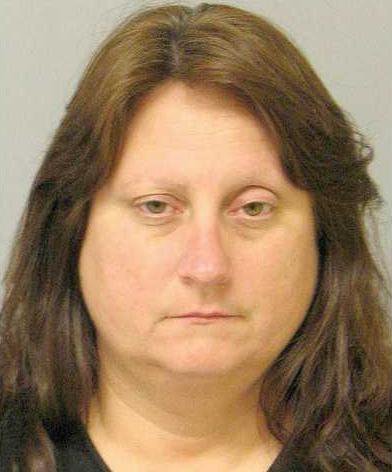When a team of deputies entered an east Hall County home to search for evidence of a poisoning, the smell of bleach was the first thing they noticed.
“It was offensive to the nostrils,” Hall County Sheriff’s Investigator Wayne Sproul recalled during a court hearing Wednesday.
At the time of the October 2007 search, authorities considered Stephanie Stowers a suspect in the nonfatal arsenic poisoning of her husband, 51-year-old chicken farmer Louis “Stump” Stowers. The day before, Sproul noticed she had many of her belongings “packed to the hilt” in a sports utility vehicle.
Given that Stowers appeared to be moving out of the house she shared with her husband when investigators paid her an unannounced visit the day before, the smell inside the house raised their suspicions.
“I thought it was strange she would take the time to really clean the house using a bleach product,” Sproul testified during a pretrial hearing in Hall County Superior Court.
Attorneys for Stephanie Stowers want a judge to suppress evidence seized in a search of the Latty Road house, including information found on a personal computer taken from the home.
Sproul testified that investigators found burnt remnants of paper in a fireplace. A magazine article that had not been completely burned “had something to do with the number of deaths in the United States attributed to arsenic,” Sproul testified.
A forensic search of the computer by the Georgia Bureau of Investigation revealed data related to arsenic research, but the GBI could not determine the dates of the research, Sproul said. A relative of Stephanie Stowers claimed ownership of the computer.
Investigators searched for a laptop computer belonging to Stephanie Stowers, but it was never located, Sproul said.
Stephanie Stowers, who is now divorced from Louis Stowers, is charged with criminal attempt to commit murder, aggravated assault and aggravated battery.
Investigators were first contacted by Louis Stowers’ brother-in-law in late October 2007 while Stowers was hospitalized with kidney failure. Toxicology tests run at the hospital revealed he had lethal levels of arsenic in his system.
Sproul testified that the test results concerned hospital officials enough that they met and decided to move Stowers into the intensive care unit “for his own protection.”
Sproul said doctors apparently wanted to move Louis Stowers away from his wife, who had kept a constant beside vigil in her husband’s room and kept visitors out.
“Mrs. Stowers was reportedly very irate that a (toxicology) screen had been performed without her knowledge,” Sproul testified.
Louis Stowers told investigators that immediately after he married Stephanie Stowers in May 2006, “Mrs. Stowers began, as Mr. Stowers put it, nagging him to put a will together, and he refused.”
Stephanie Stowers wanted her husband to change his beneficiaries from his children to her, “because that’s what’s husbands and wives do,” according to Sproul.
“After a year or so, he changed the will to make her the sole beneficiary,” Sproul said.
Some time after the will was changed, Louis Stowers noticed that his coffee tasted over-sweetened and bitter at the end, Sproul said.
Once, when he discovered a “gunky substance” at the bottom of the cup, his wife “snatched it up, and made remarks to the effect that it was an off-brand coffee,” the investigator testified.
Louis Stowers, who had been a two-cup-a-day coffee drinker, eventually was consuming up to 15 cups of coffee a day, the investigator said.
Stowers began suffering from numbness in the extremities, particularly the hands, had trouble getting out of bed and sometimes stayed in bed for days, Sproul said.
“Doctors said the symptoms he was experiencing were all indicators of someone who had been chronically poisoned,” Sproul testified.
Stephanie Stowers, who was in court for Wednesday’s pre-trial hearing, is free on bond awaiting trial. The case could go to trial in September or November.
Judge Kathlene Gosselin will rule on the defense motions to suppress evidence at a later date.
Assistant Circuit Defender Adam Levin asked Gosselin to close the courtroom to the news media Wednesday, expressing concerns over pretrial publicity. He said national news media outlets had expressed interest in the case.
Gosselin denied the motion.

